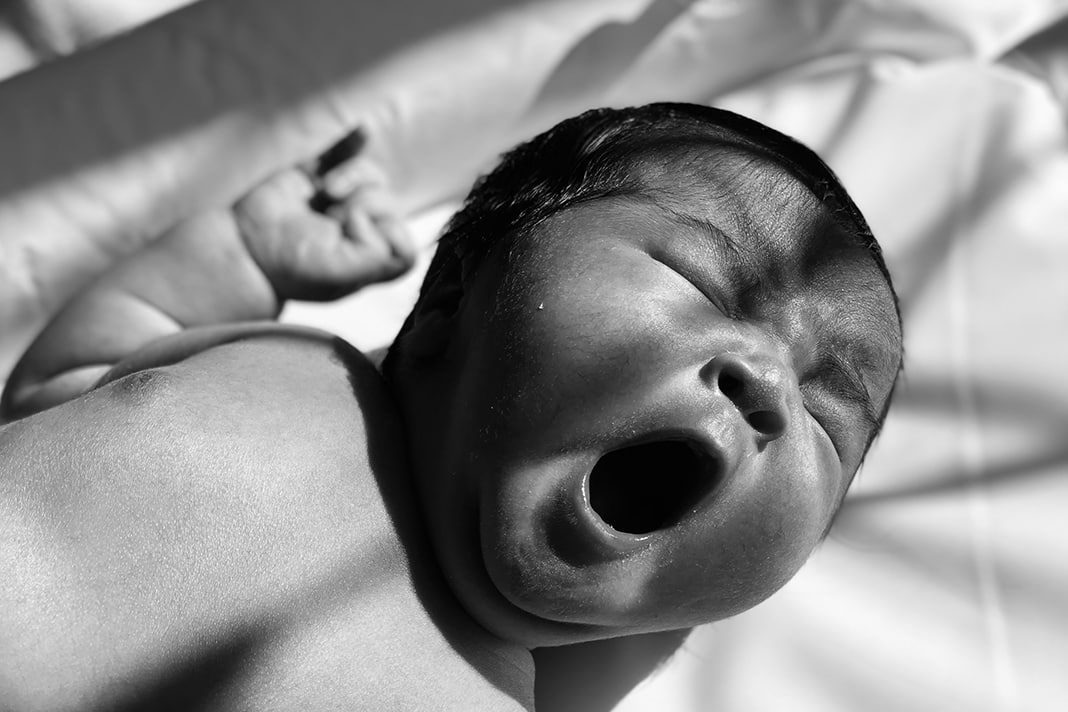Expert baby sleep advice: sleep consultant Karen Miller explains why parents don’t need to accept sleep deprivation…
_____________
‘You can forget about sleep now!’ is a very common phrase that new and expecting parents are sure to hear over and over again from friends and family. It’s commonly accepted that once you have a child, sleep deprivation is the norm and something you just have to learn to live with.
We seem to have made little progress over the years when it comes to advice around babies’ sleep.
Phrases such as ‘Sleep when the baby sleeps’ and ‘It’s just a phase’ as well as ‘Get used to being exhausted’ are simply not helpful.
The truth is, sleep is a biological need, not a luxury. The consequences of getting less than seven hours sleep a night on someone’s physical and mental health are much more serious than people realise.
More than 1 in 10 women in the UK suffer with postnatal depression, according to the NHS, and up to 1 in 10 new fathers are also suffering. More needs to be done to educate new parents on the links between sleep deprivation and mental health issues.
In his book ‘Why We Sleep’, Matthew Walker talks about how sleeping less than six to seven hours a night demolishes your immune system, more than doubling your risk of cancer. He explains that insufficient sleep is a key lifestyle factor as to whether or not you will develop Alzheimer’s disease. It also contributes to all major psychiatric conditions, including depression, anxiety and suicidality. Most shockingly, Walker discusses how drowsy driving, which are accidents caused by sleep deprived drivers, exceed those caused by alcohol and drugs combined.
As a sleep consultant, I know that many parents feel guilty for reaching out for support and wanting their child to sleep. Many are even suffering with severe anxiety as a result.
The loss of control and exhaustion some mothers feel spending all day trying and failing to get their baby to sleep, only to be up all night as well, is frankly miserable.
Added to that is the pressure of having to potentially go back to work on little to no sleep, with many expressing that they don’t know how they will cope, but they feel like they have little choice.
Not only does it affect the mother’s ability to function as a parent but it can also impact your relationship. Many couples end up sleeping in separate rooms and miss having their evenings to spend with their partner. Weekends are mostly spent with dads trying to carry some of the burden, so mum can catch up on some sleep, but where does that leave you as a couple?
It’s becoming more acceptable to reach out and ask for help for things like breastfeeding, for example, with lots of support available, but when it comes to sleep there seems to be this unwritten rule that you just have to accept it. Mums feel judged for expressing their concern over their child’s sleep and many do not admit to using a sleep consultant, for fear of others thinking they are being selfish for wanting a good night’s sleep.
But what can you do to help your child sleep more soundly?
Sleep Environment
Creating the right environment can help promote the sleepy hormone, melatonin, which helps baby to settle and stay asleep. Use black out blinds to keep the room as dark as possible and keep the temperature between 18-20c. Night lights are great for toddlers when they become scared of the dark around age three, avoid white/blue light which can block melatonin.
Awake Windows
Avoiding the dreaded overtiredness makes all the difference in how well your child sleeps. To do this, don’t rely on tired signs as some babies don’t have any. Instead find out what their ideal awake windows are for their age and stick to those. Put them to sleep within that window of time, not after, and this will help to ensure they settle quickly.
Sleep Props
Consider which sleep associations you’re comfortable with. Dummies are great for newborns but can become an issue after four months. Use positive sleep props like comfy toys, swaddles and white noise.
Don’t Rush In
Overnight – stop, listen and then react. This will help you to learn what type of cry it is. Are they genuinely hungry? Do they need help to calm down or are they just tired? Sometimes we don’t need to go in at all, especially if baby is over four months they may settle themselves back to sleep.
The most important thing to remember is there is no right or wrong way for getting your child to sleep – but it is possible for them to sleep well. Sleep isn’t something for the select lucky few who have ‘good’ babies, it’s important for everyone to be able to function properly. It’s time to make sleep a priority because there is a reason why everything is better after a good night’s sleep.
Karen Miller is a Baby and Toddler Sleep Consultant and founder of Asleep At Last
Read next: Tips for better sleep during pregnancy






COMMENTS ARE OFF THIS POST